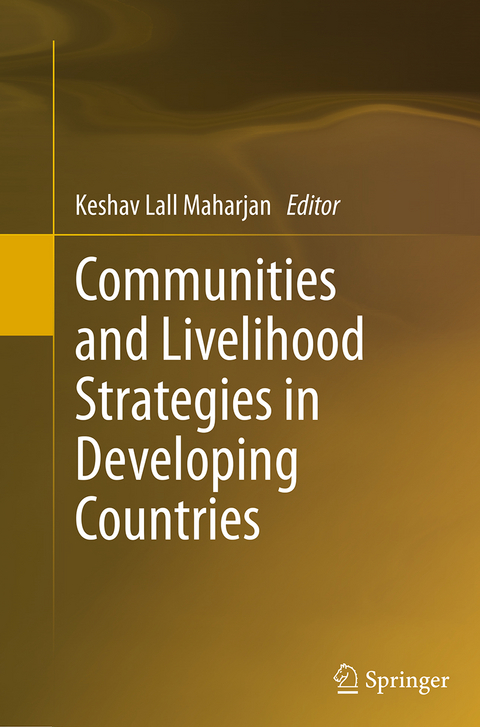
Communities and Livelihood Strategies in Developing Countries
Springer Verlag, Japan
978-4-431-56379-2 (ISBN)
Communities and Livelihood Strategies: An Overview.- Climate Change Impact on Revenue of Major Food Crops in Ghana: Structural Ricardian Cross-Sectional Analysis.- Climate Variables and their Impacts on Yield of Food Crops in Makwanpur and Ilam District of Nepal.- Adoption of Improved Rice Varieties in the Tarai Region of Nepal.- Effects of Environmental Factors on Cattle Milk Production among Smallholder Households in Ala-Buka, Kyrgyzstan.- Farmer’s Perception on Impact of Organic Farming on Yield and Income of Vegetables: A Case Study in Kathmandu Valley and Chitwan District of Nepal.- Riverbed Vegetable Farming for Enhancing Livelihoods of People: A Case Study in the Tarai Region of Nepal.- Income Generation through People’s Participation: Kitchen Gardening Practices of Three Marginalized bagdi Villages in Bangladesh.- Post Mount Merapi Eruption Recovery of Smallholder Dairy Farming: A Case Study of Disaster Management in Indonesia.- Capacity of Rural Institutions in Implementing Decentralized Development in Indonesia: Case of Three Villages in Purbalingga District, Central Java Province.
| Erscheinungsdatum | 26.08.2016 |
|---|---|
| Zusatzinfo | 50 Illustrations, color; 4 Illustrations, black and white; XXV, 178 p. 54 illus., 50 illus. in color. |
| Verlagsort | Tokyo |
| Sprache | englisch |
| Maße | 155 x 235 mm |
| Themenwelt | Naturwissenschaften ► Biologie ► Ökologie / Naturschutz |
| Naturwissenschaften ► Geowissenschaften ► Geografie / Kartografie | |
| Naturwissenschaften ► Geowissenschaften ► Meteorologie / Klimatologie | |
| Sozialwissenschaften ► Soziologie | |
| Weitere Fachgebiete ► Land- / Forstwirtschaft / Fischerei | |
| Schlagworte | Decenttralized Rural Development • Disasters/shocks • Impacts of Climate Change and Adaptive Responses • Innovative Livelihood and Agricultural Innovation • Local Networking to Contain • Smallholder Dairy Farming • Vegetable Farming of Marginalized Farmers |
| ISBN-10 | 4-431-56379-2 / 4431563792 |
| ISBN-13 | 978-4-431-56379-2 / 9784431563792 |
| Zustand | Neuware |
| Haben Sie eine Frage zum Produkt? |
aus dem Bereich


